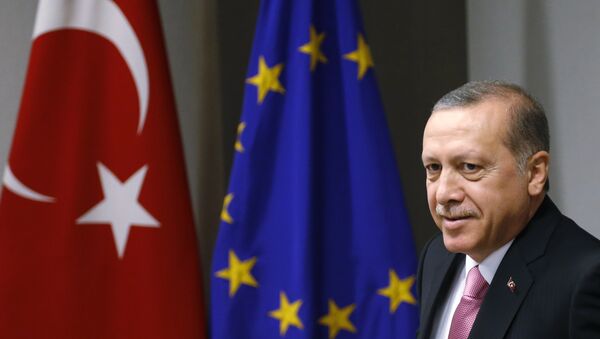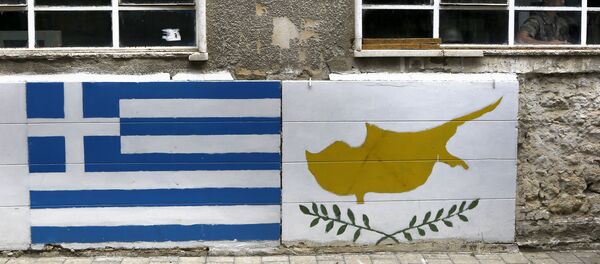Tusk has said that Turkey could be rewarded if it can do more to stem the influx of migrants and refugees flooding across the country and into Europe, where there is a significant asylum-seeker crisis which is threatening some of the major pillars of the European Union.
"An agreement with Turkey makes sense if it effectively reduces the inflow of refugees," Tusk said ahead of the arrival of a delegation of senior European Commission officials to Ankara.
An agreement with & concessions to Turkey only make sense if it effectively reduces influx of migrants. #EUCO #migrationEU
— Donald Tusk (@eucopresident) October 13, 2015
According to the European border agency Frontex, the total number of migrants who crossed the EU's external borders in the first nine months of this year rose to more than 710,000 — with the Greek islands on the Aegean continuing to be the most affected by the unprecedented inflow of people. This compares with 282,000 recorded in all of last year.
Due to an increasing shortage of boats in Libya and worsening weather conditions, the number of migrants arriving in Italy halved in the month of September to 12,000. That has led to a massive increase in those using Turkey as the transit route from the Middle East to Europe.
How many Syrians arrived in Greece? Eritreans in Italy? Check out our updated routes map http://t.co/UCde8h1fyc pic.twitter.com/XqoEU4cmJq
— Frontex (@FrontexEU) October 14, 2015
Greece has thus become the main country of entry. The Greek islands, especially Lesbos, continuing to face massive migratory pressure, with the number of detections in the January-September period reaching 350,000.
Athens vs Ankara
But the offer of concession to Turkey — including visa-free travel and an acceleration of its full membership of the EU, having been only an associate member since 1963 — could spark off old enmities between Turkey and Greece, which — ironically — has most to gain from Turkey cracking down on the influx of asylum-seekers.
— Frontex (@FrontexEU) October 14, 2015
In last month intensified cooperation between @FrontexEU & Greek authorities has created results. But need a more automatic support system.
— Frans Timmermans (@TimmermansEU) October 14, 2015
It will also cause concern among other EU member states as Germany, France and others are reluctant to accept populous Muslim Turkey into the EU and raise human rights concerns over Erdogan's policies towards, among others, Kurds and the media.
There is considerable animosity between Greece and Turkey dating back centuries, but most recently centered on Cyprus, where — in 1974 — Turkey occupied a third of the island in response to an Athens-backed coup aimed at annexing Cyprus to Greece.
Turkey refuses to acknowledge the Republic of Cyprus (an EU member since 2004) as the sole authority on the island, and recognizes the self-declared Turkish Republic of Northern Cyprus since its establishment in 1983.
This has been a major sticking point in the question of the accession of Turkey into the EU as a full member. Another is a dispute over territorial sea limits between the two nations. Erdogan's position on the Kurds — as well as the continuing crises in neighboring Syria and Iraq are exacerbating the situation.
Tusk will have his work cut out to reach an agreement that will see Turkey take action to stem the flow of asylum-seekers into Europe, in return for significant progress over Turkey's membership of the EU. Athens will benefit from Ankara stemming the tide, but will consider concessions unpalatable.



